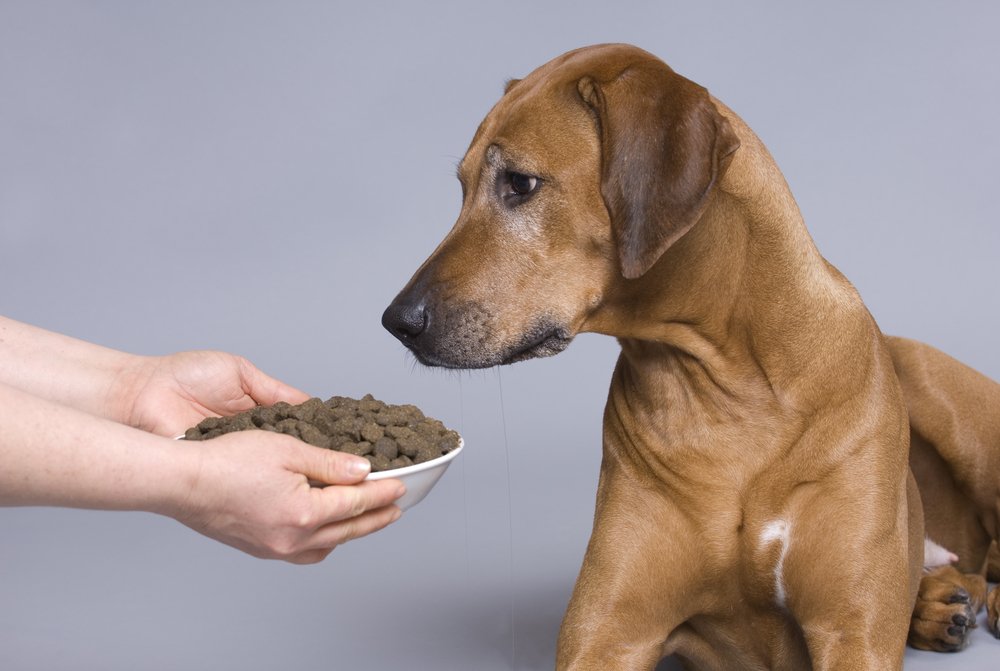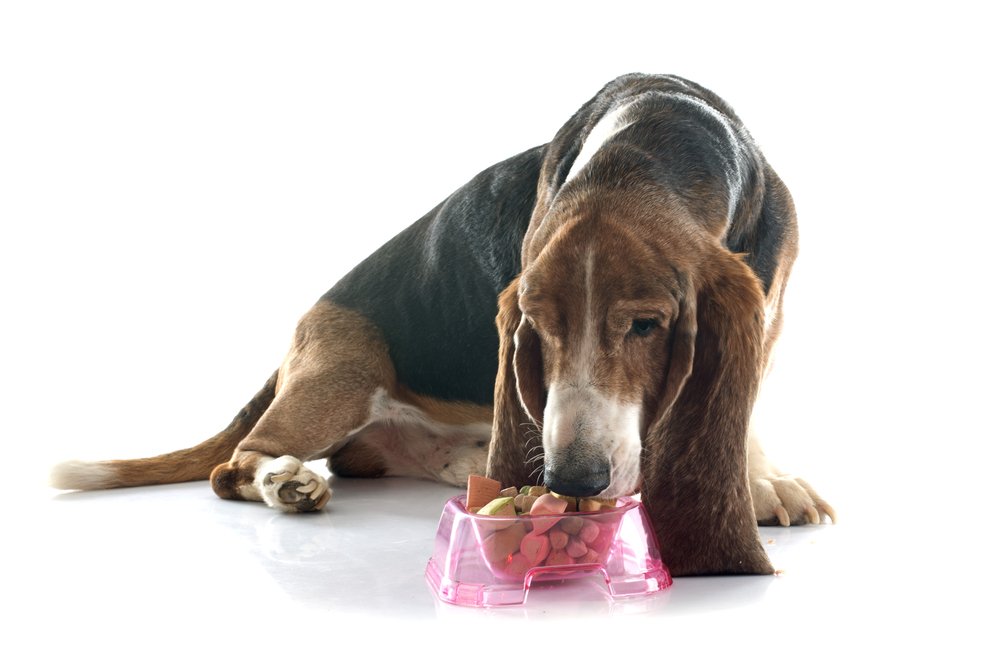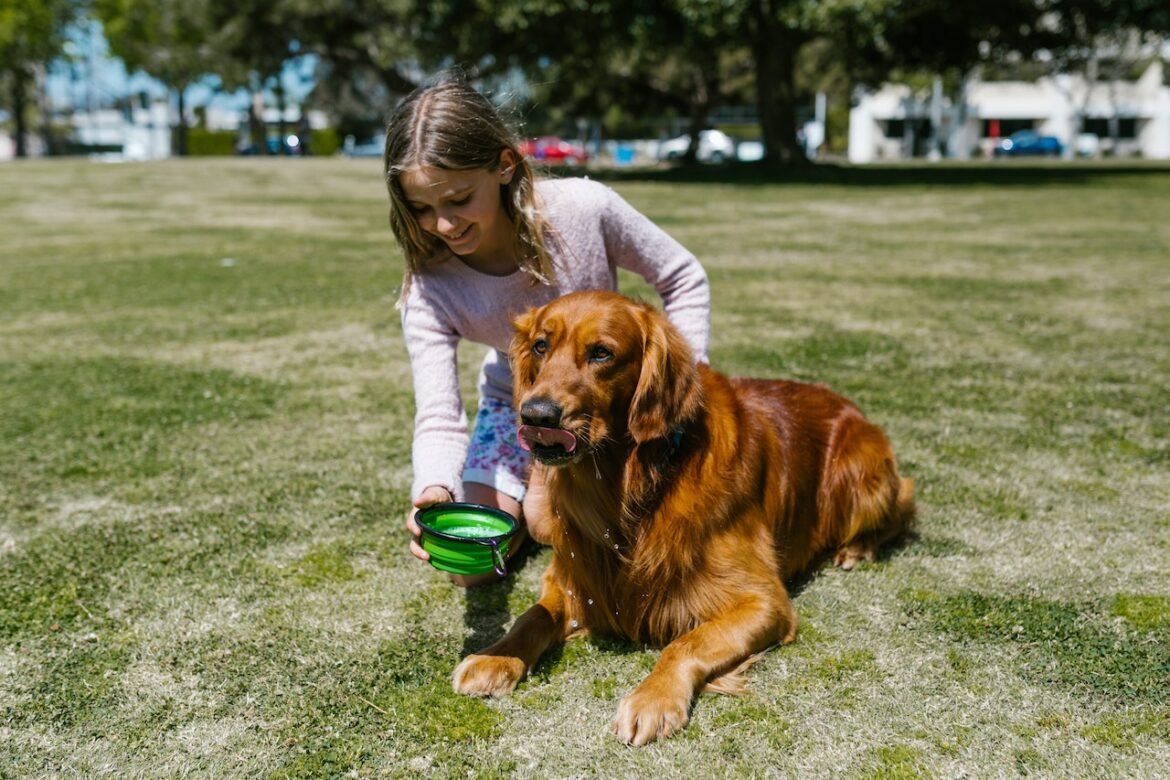Table of Contents
As your beloved canine companion ages, it’s important to be aware of the changing nutritional needs and health restrictions of a senior dog. Providing quality nutrition for your pup throughout their senior years is one key thing you can do to help prolong and enhance their life.
In this comprehensive guide, we’ll walk you through five essential tips that every pet parent should know when it comes to feeding senior dogs – giving them the best possible care in their golden years so they can enjoy them as much as possible!
1. Optimizing Nutrition for Senior Dogs
As our beloved canines age, their nutritional needs change. It’s important to keep in mind that senior dogs require fewer calories than they did when they were younger and that certain health issues may be more prevalent.

Proper nourishment can make a monumental difference in combatting these issues.
1.1. Protein
Senior dogs need a protein-rich diet that contains easily digestible sources of protein, such as chicken, turkey, fish, or eggs. These proteins will help maintain muscle mass while providing the necessary energy for everyday activities.
1.2. Calcium and Phosphorus
Calcium and phosphorus are essential minerals for aging pups because they help strengthen bones and reduce the risk of joint problems.
Sources of calcium include dairy products such as yogurt or cheese as well as leafy greens like broccoli and spinach.
Sources of phosphorus include legumes like lentils, kidney beans, or black beans.
It’s best to consult with your vet if you’re unsure about how much calcium and phosphorus your pup should be getting each day.
1.3. Vitamins and Minerals
Vitamins A and E are especially important for senior dogs because vitamin A helps boost the immune system while vitamin E helps protect against oxidative stress that can lead to degenerative diseases.
Additionally, vitamins C and D are essential for bone health in older canines. You can also look into supplementing with omega-3 fatty acids to help reduce inflammation in arthritic joints—just be sure to consult with your vet before doing so!
1.4. Fiber
Fiber is another important nutrient to consider when it comes to feeding your senior dog—it helps promote healthy digestion by increasing stool bulk and reducing constipation.
Good sources of fiber include oats, oat bran, barley, sweet potatoes, applesauce, pumpkin puree, or even some pureed vegetables like carrots or squash!
By being mindful about what you feed your pup (and how much!), you can ensure that your senior dog gets all the nutrients he needs for a long and happy life!
2. How to Choose the Best Senior Dog Food?
With so many options out there, choosing the best senior dog food can be overwhelming. To help make this process easier, let’s discuss some of the factors to consider when selecting food for your senior pup.
2.1. Protein Content
Protein is essential for our pups at all stages of life, but especially in their later years. Senior dogs require higher levels of protein than younger dogs since this helps maintain and rebuild muscle mass.
A good rule of thumb is to look for dog food with at least 25% protein content; however, an even better option would be one with 30-35%. This will ensure that your pup is getting just the right amount of protein for their age and activity level.
2.2. Calorie Content
Older dogs tend to have lower energy levels and may become overweight if they consume too many calories. When choosing a senior dog food, look for one that contains fewer calories than other brands.
The calorie content should be around 250-400 per cup (depending on your pup’s size) and should include healthy fats such as fish oil or flaxseed oil to ensure that your pup still gets all its essential nutrients while consuming fewer calories overall.
2.3. Added Vitamins and Minerals
As our pups age, their bodies become less efficient at absorbing certain vitamins and minerals. That’s why it’s important to choose a senior dog food that has added vitamins and minerals such as omega-3 fatty acids, glucosamine, and chondroitin sulfate which can help support joint health in seniors as well as Vitamin A and E which can help maintain skin and coat health in aging pups.
2.4. Specific Ingredients
It’s also important to check the ingredients list on the back of any senior dog food you buy. Make sure there are no artificial colors or preservatives added in addition to avoiding wheat products or corn which can cause allergies in some pups.
Look for foods made with natural ingredients like real meat or fish plus carbohydrates like brown rice or sweet potatoes as these are easy for older dogs to digest while providing them with essential nutrients they need throughout their life stages.
3. Types of Senior Dog Food
When it comes to senior dogs, there are three main types of food you can choose from: dry, wet, and homemade. Let’s take a look at each one and see which type is best for your furry companion.
3.1. Dry Dog Food
Dry dog food tends to be the most widely available and economical option when it comes to feeding your senior pup. It’s also easy to store and portion out in advance.
There are many brands of dry dog food specifically designed for seniors. These formulas often contain higher levels of proteins as well as other vitamins and minerals that help support joint health and mobility, boost immunity, and improve digestion in older dogs.
3.2. Wet Dog Food
If your senior pup has trouble chewing or digesting kibble, wet dog food might be a better option for them. This type of food usually contains fewer calories than dry food but higher amounts of fat and protein – which helps aging dogs stay energized without gaining too much weight.
Plus, since wet foods tend to be softer in texture than dry foods, they are easier for senior pups with sensitive teeth or poor oral health to chew and swallow.
3.3. Homemade Dog Food
For those looking for an extra special way to show their fur baby some love, homemade dog food can do just the trick! This type of diet is made up of ingredients like lean meats, vegetables, grains, dairy products (in moderation), eggs, fish oils, fruits (also in moderation), etc., all depending on the specific dietary needs of your pup.

Homemade meals may take more time and effort than buying pre-made pet foods but they can offer the benefit of customization based on your pup’s individual requirements – not just their age but any allergies or conditions they may have as well.
4. Recommendations for Feeding Senior Dogs
The amount and frequency at which you feed your senior pup should be based on their age, activity level, and overall health. Let’s take a look at what kind of adjustments you need to make in order to keep your pup healthy and happy.
4.1. Portion Size
As dogs get older, they tend to become less active. This means that they don’t require as much energy as they did when they were younger. Therefore, it’s important to reduce the portion size of their meals to account for this decreased activity level.
A good rule of thumb is to reduce the portion size by about 25-50%. Additionally, if your pup is overweight or obese, you may want to consider reducing the portion size even further in order to help them shed some extra pounds and promote better health.
4.2. Feeding Frequency
Generally speaking, senior dogs can benefit from eating two smaller meals a day instead of one large meal. Eating several smaller meals throughout the day helps regulate blood sugar levels more efficiently while also providing them with a steady supply of energy throughout the day.
However, if your pup has difficulty digesting food or is prone to bloating and stomach issues, then sticking with one larger meal a day may be best for them.
4.3. Consulting with a Veterinarian
It’s always best practice to consult with your veterinarian regarding any changes that you make in regard to your pet’s diet or feeding schedule, especially when it comes to senior dogs. Your vet will be able to provide you with personalized recommendations based on your pet’s individual needs and lifestyle so that you can ensure that they are getting all the nutrition that they need for optimal health.
5. Caring for Senior Dogs with Supplements and Treats
Let’s take a look at some of the best options for caring for your aging pup:
5.1. Vitamins and Minerals
Look for food sources that contain higher levels of vitamins A, B-complex, C, D, E, and K, as well as choline and calcium.
Additionally, you may choose to give your pup a multivitamin supplement if you feel their diet is lacking in these important nutrients. Just be sure to consult with your veterinarian before adding any supplements to your pup’s diet.
5.2. Joint Supplements
As dogs age, joint problems can become more common due to arthritis or wear and tear on joints over time.
To keep your pup comfortable and active as they age, consider giving them a joint supplement such as glucosamine or MSM (methylsulfonylmethane). These supplements can help alleviate pain associated with arthritis while also promoting healthy cartilage and connective tissue in joints.
Again, it’s best to consult with your vet before giving any type of supplement to your dog.
5.3. Dental Treats
Senior dogs often suffer from dental issues due to weakened teeth or gum disease caused by plaque buildup over time.

To help prevent further damage and keep their mouth healthy, consider giving them dental treats specifically designed for senior pups. These treats are made with special ingredients such as green tea extract which help reduce plaque buildup while also freshening breath.
You may also want to brush your pup’s teeth regularly using toothpaste specifically formulated for dogs.
Conclusion
Feeding your senior dog the right type of food is crucial to maintaining their health and vigor. By following these five tips, you can ensure that your older pup stays happy and healthy for years to come. Do you have any other tips for feeding senior dogs? Share them with us in the comments below, or on our Facebook page! And be sure to share this comprehensive guide with all your friends who are also looking to optimize their pets’ nutrition.
